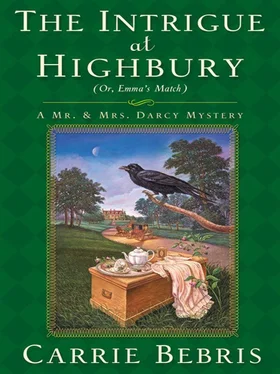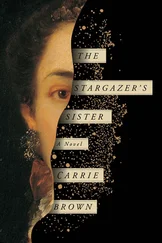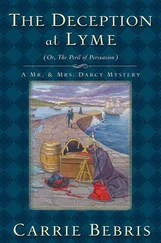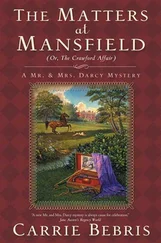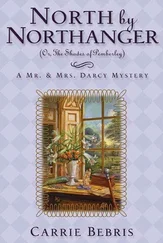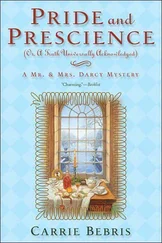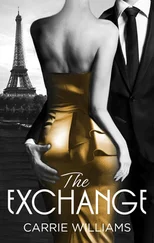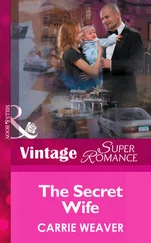“I appreciate your discretion. Murder is a crime with which we, thankfully, are little acquainted in Highbury, and I trust that remains the case. I expect Mr. Perry’s findings to confirm Mr. Churchill’s death as accidental. One merely prefers certainty.”
Mrs. Knightley, the butler informed their host, was engaged with the Westons and Churchills at present, and Mr. Knightley decided to leave them undisturbed. With apologies for what he perceived as neglect, but which the Darcys did not take as such, he consigned them to the care of the housekeeper.
“I shall introduce you to Mrs. Knightley on the morrow. Meanwhile, do not hesitate to ask for anything you require.” Mr. Knightley started to retreat, but then halted and turned to them once more. “By the bye — did you solve them? The murders?”
“We did indeed,” Darcy said.
Mr. Knightley did not reply. He merely looked pensive as he headed to meet the apothecary in Mr. Churchill’s chamber.
“As it seems a matter of justice, it shall be done.”
— Mr. Knightley ,
Emma
“I believe,” Elizabeth said to Darcy as she sat at the dressing table, preparing to go down to breakfast, “that you and I have grown alarmingly accustomed to the presence of death and mayhem in our everyday existence.”
Across the bedchamber, he paused over the letter he was writing to Colonel Fitzwilliam. “Why do you say so?”
“One might expect that being set upon by thieves and arriving here in the midst of a fatal fête would disturb one’s equanimity, yet I think I fell asleep last night the moment I closed my eyes.” Indeed, by the time their servants and luggage were collected from the Crown, little had remained of the night, and Elizabeth had noticed almost nothing about their chamber save the great canopied walnut bed centered on one wall. Upon awakening, she had found herself in a spacious, well-appointed room with sturdy, centuries-old furnishings and a view of Donwell’s apple orchard in the distance.
“You were exhausted from the travel and turmoil.”
She knew Darcy had been, as well. Despite her fatigue, his restlessness had disturbed her slumber more than once during the night, and this morning his mood remained more serious than usual.
“Even so, if misadventure continues to find us whenever we leave home, people will stop inviting us to visit.” She adjusted the lace of her chemisette and pinched her cheeks to add color to them. “I doubt Mr. Knightley has any notion what he took on by encouraging us to stay. It was noble of you to warn him.”
“I did nothing of the sort.” He added a line to the end of his letter, then signed his name. “In mentioning those previous incidents, I merely sought to assure him of our discretion regarding the Churchill matter.”
“Nevertheless, I approve your conscientiousness. Mr. Knightley seems a good sort of man, and I look forward to meeting his wife.”
She turned back to the mirror and made the finishing touches to her toilette. Though more inclined to wear a simpler dress to breakfast, Elizabeth wanted to make a good impression upon Mrs. Knightley, and so had chosen her chintz morning gown, with its scalloped front-button closure from bodice to hem. With winter approaching, her maid had attached the long, ribbon-trimmed sleeves just before they left Derbyshire, for which Elizabeth was grateful. Despite the fire in their chamber, the air held a nip that she attributed to the wind rustling the leaves outside.
Darcy, too, had chosen his attire with care. The navy blue coat was among her favorites, for it complemented his dark hair and eyes, and showed to advantage the broad shoulders that never shirked a burden placed upon them.
She smoothed the curls that peeked from under her cap, and rose. “Altogether, I declare this a better experience than the last night we passed in an abbey.”
Her lighthearted reference to Northanger Abbey and the intrigue it had held elicited the smile from Darcy that she had hoped to provoke. It was slight and brief, but she was glad to see it flicker across his countenance.
“Here, however, it is my mother’s jewelry that is missing.”
“I rue the ring’s disappearance,” she said, “but the christening garments distress me most.” The set had been worn by three generations of Darcy’s family: first, Hugh Fitzwilliam, the Ninth Earl of Southwell, and his two sisters, Lady Catherine and Lady Anne, Darcy’s mother. In time, their children had worn it: Hugh’s three sons, including James — now Colonel — Fitzwilliam; Darcy and his sister, Georgiana; and Lady Catherine’s daughter, Anne de Bourgh. Most recently, Darcy’s daughter, Lily-Anne, had been baptized in the set. “We cannot replace a christening gown worn by yourself and your daughter, and so many of your other relations. I had hoped to see more children of ours wear it after Anne and Colonel Fitzwilliam’s child is christened.”
“I do not intend to leave Highbury until we have exhausted all possible avenues for recovering our belongings. Mr. Knightley might already have learned something about the thieves during the night.” He dripped melted wax onto the letter and sealed it. “Though doubtless he is more occupied with Mr. Churchill.”
“It would be unnatural if he were not. To have a guest die during dinner — what a dreadful event! And then two strangers arrive in the midst of it to report a robbery. I think it speaks well of Mr. Knightley’s character and sense of duty that he gave us any of his time at all.”
“If highwaymen indeed threaten the village, their presence requires his attention even while he investigates the Churchill matter.” Darcy rose, the letter in one hand. The other he offered to Elizabeth and led her to the door.
“The question he posed to us at parting — do you suppose he suspects Mr. Churchill’s death was not accidental?”
“We do not know enough about the circumstances, or our host, to speculate. Nor is it our concern.”
“It most certainly is,” she replied as they stepped into the corridor. “For if we are still at Donwell for dinner, I hear we should avoid the bisque.”
Mrs. Knightley was younger than Elizabeth had expected. Given Mr. Knightley’s age, she had thought the magistrate’s wife would be closer in years to her husband’s, but instead the mistress of Donwell Abbey appeared to be within a year or two of Elizabeth’s own. Elizabeth recognized her as the lady whose father had left Donwell in dread of leftover syllabub the previous night. She was a beautiful young woman with a slender figure, flawless complexion, and intelligent hazel eyes. Her manners were graceful and her demeanor amiable, though the strain of the previous evening’s events was apparent in the smile she offered upon introducing herself.
Their hostess had been alone at table when the Darcys entered the breakfast room, the duty of seeing off numerous departing guests having prevented her from breaking her own fast until now. “Pray forgive my not having received you last night,” she said. “I did not know of your arrival until after you had retired. I am sorry to learn of the incident that brought you to us. Mr. Knightley assures me that neither of you came to harm?”
“We did not, but two of our servants were rendered unconscious for a time.”
“They have been attended to. Mr. Perry determined that they suffered no serious injury, but did advise a day of rest before they resume their duties.”
Elizabeth was relieved for the health of their servants, both loyal employees who had served the Darcy family for years. “I daresay we shall not be continuing our journey for at least that long, as your husband wanted to speak with us more today. Is Mr. Knightley about?”
Читать дальше
